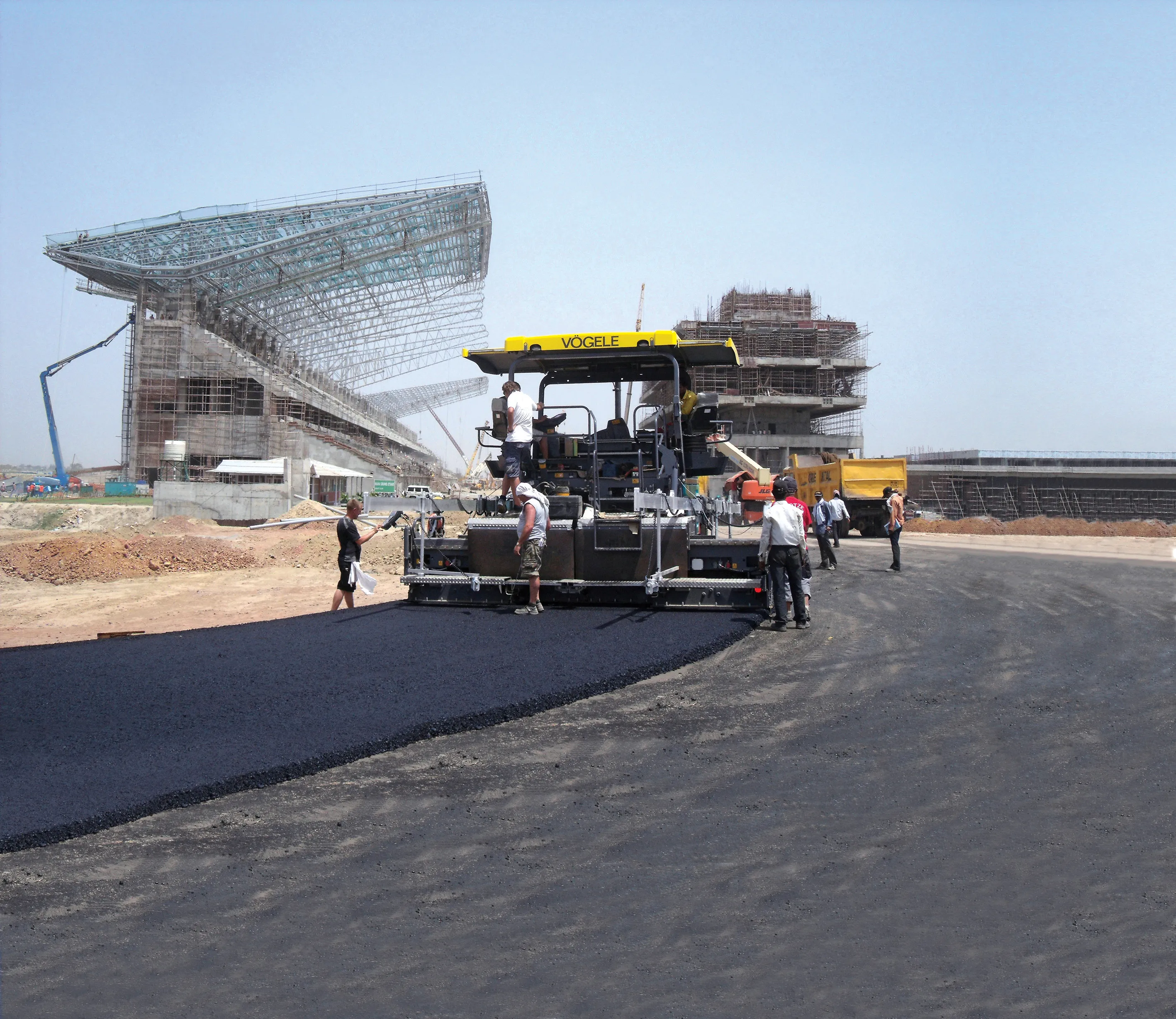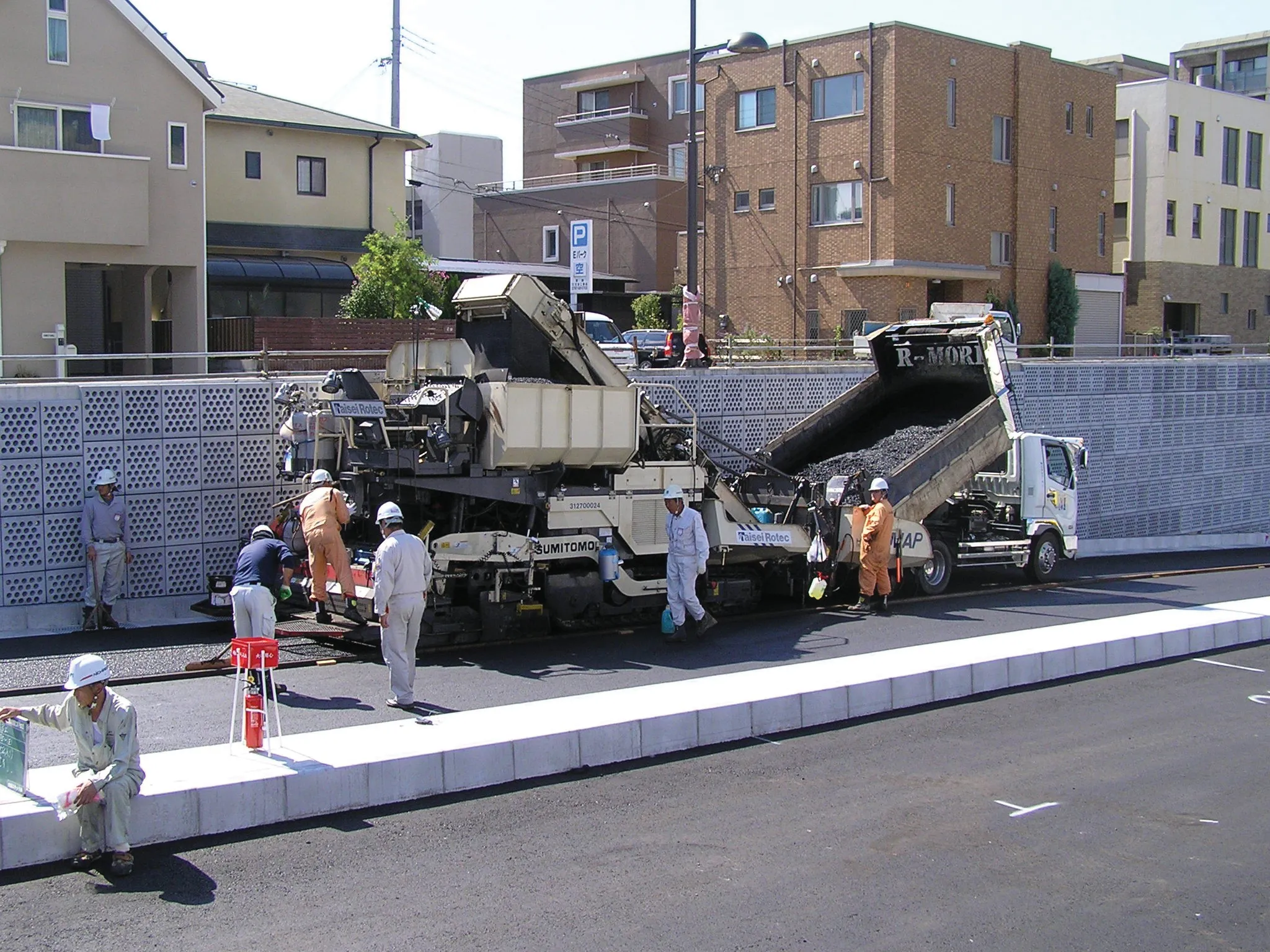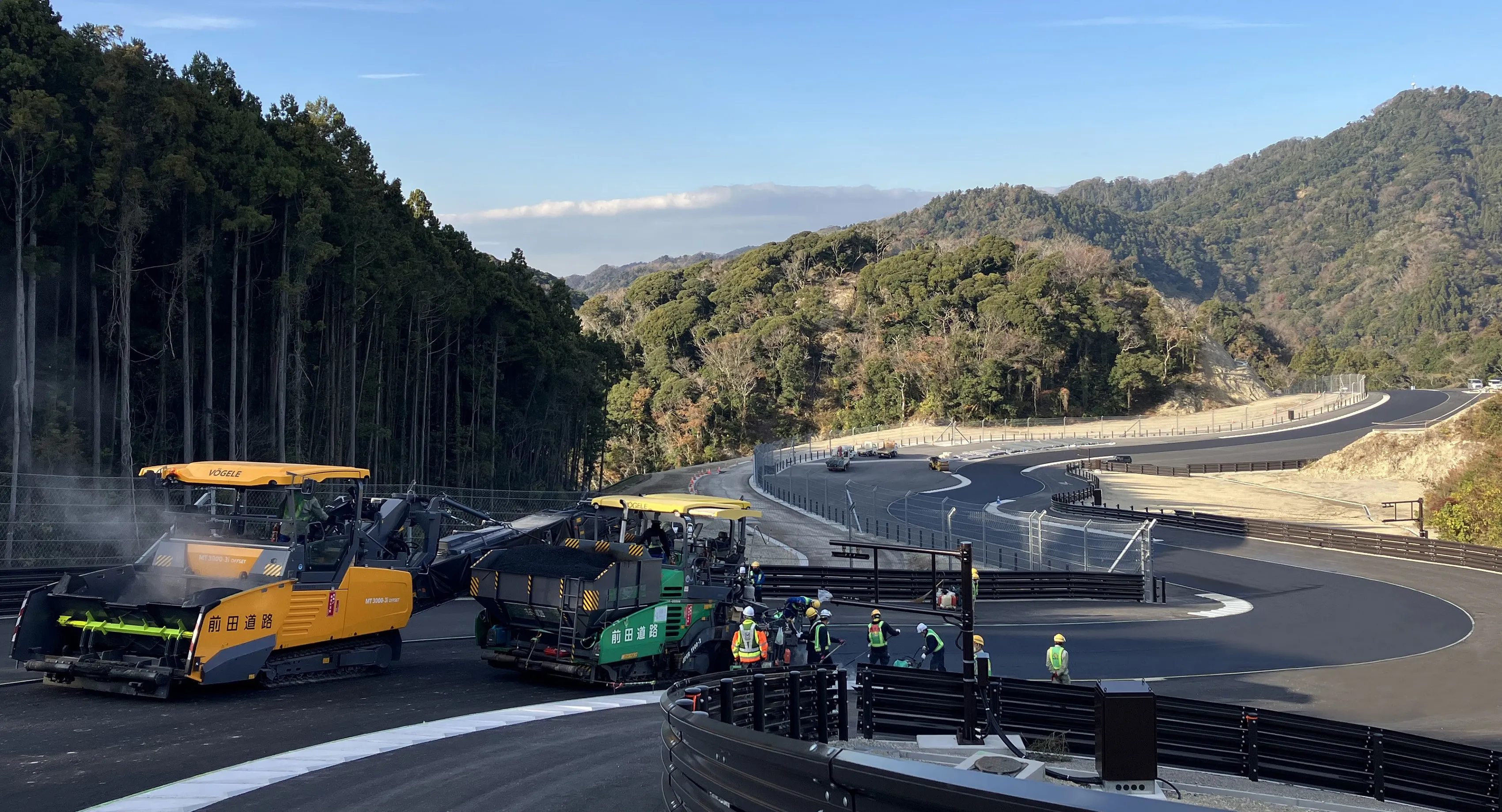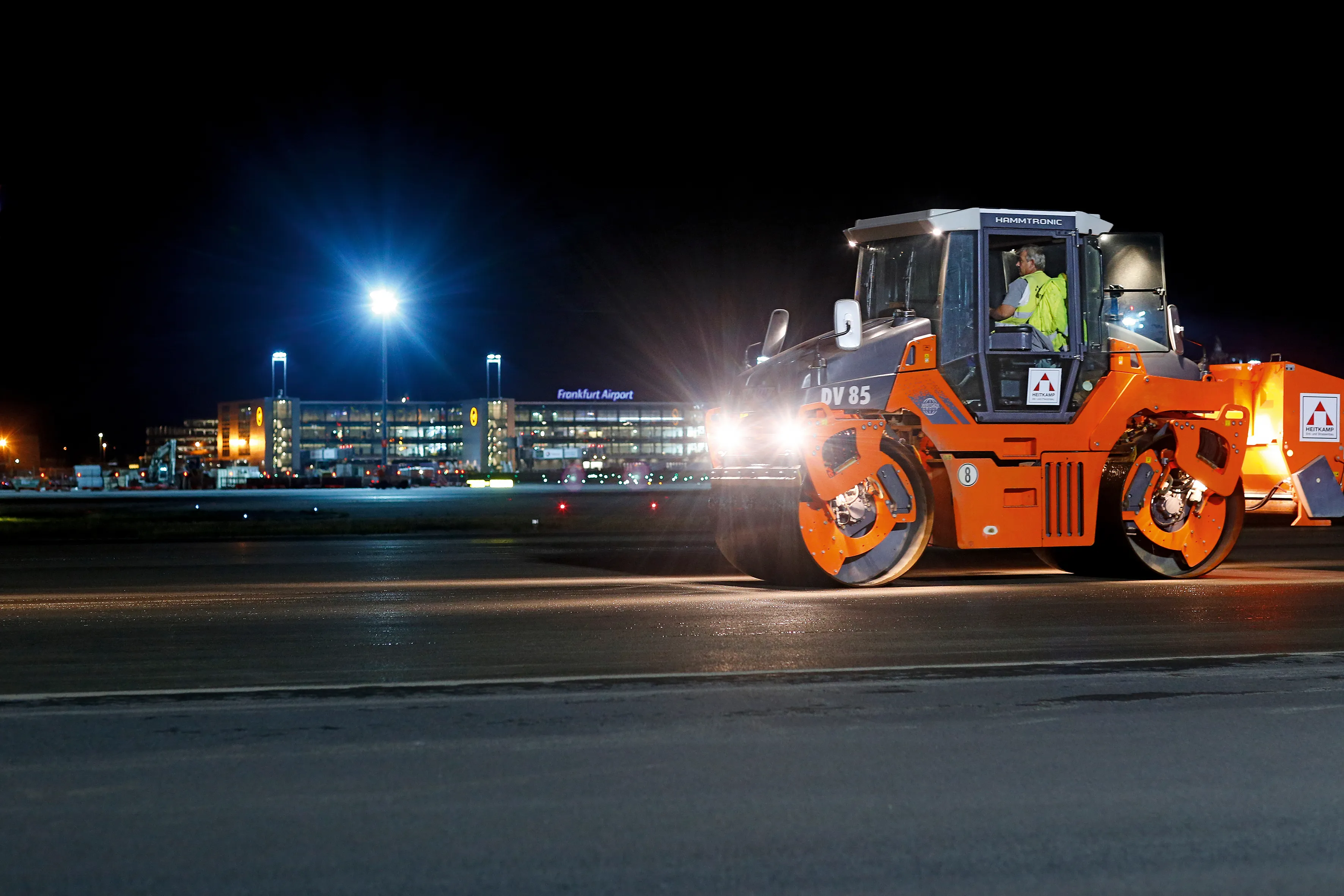Innovative spray pavers from Vögele have been used in Germany to rehabilitate a section of the A99 autobahn near Munich. In all, four SUPER 1800-2 pavers fitted with SprayJet Module were used to pave a thin, noise-reducing asphalt. overlay on spray seal on the A99 to the west of the Allach Tunnel. For pavement rehabilitation, this stretch of the busy orbital motorway near Munich could only be closed to traffic at night. The traffic volume on the A99 orbital motorway near Munich is 100,000-120,000 vehicles/d
February 22, 2012
Read time: 3 mins
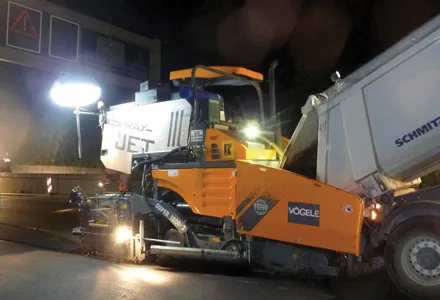
Innovative spray pavers from 1194 Vögele have been used in Germany to rehabilitate a section of the A99 autobahn near Munich. In all, four SUPER 1800-2 pavers fitted with SprayJet Module were used to pave a thin, noise-reducing asphalt
overlay on spray seal on the A99 to the west of the Allach Tunnel. For pavement rehabilitation, this stretch of the busy orbital motorway near Munich could only be closed to traffic at night. The traffic volume on the A99 orbital motorway near Munich is 100,000-120,000 vehicles/day, which was why the work had to be carried out at night. Multiple construction jobs were carried out simultaneously to further reduce traffic disturbance, while night-time working was also used to improve the road's noise protection.
To the west of the tunnel, the old wearing course was replaced with a new thin overlay paved on spray seal, hot on hot. The contract for the rehabilitation work was awarded to Max Streicher from Deggendorf.
The section of road began about 30m inside the Allach Tunnel and extended some 600m in the direction of Salzburg and some 800m in the direction of Stuttgart. In the first night, two2395 Wirtgen milling machines removed the old pavement to a depth of 70mm, while on the second night, the new 55mm binder course was placed. More than 30 light balloons illuminated the job site.
Four SUPER 1800-2 pavers fitted with SprayJet Modules worked in echelon. These applied the bitumen emulsion type and also placed the 15mm wearing course. Three of the pavers were equipped with AB500-2 extending screeds and operated in varying widths from 2.55-5m. The fourth paver used an AB600-2 extending screed set to a paving width of 3m. The result was a new, low-noise wearing course varying from 16-19m wide.
To deliver the necessary grade and slope control, the outermost pavers were equipped with multi-cell sonic sensors tracking the edges of the existing road, left and right. The two pavers following behind also used sonic sensors for referencing from the freshly paved strips. This repaved surface is expected to allow long wearing life and durability, as well as combining low noise performance with good skid resistance.
overlay on spray seal on the A99 to the west of the Allach Tunnel. For pavement rehabilitation, this stretch of the busy orbital motorway near Munich could only be closed to traffic at night. The traffic volume on the A99 orbital motorway near Munich is 100,000-120,000 vehicles/day, which was why the work had to be carried out at night. Multiple construction jobs were carried out simultaneously to further reduce traffic disturbance, while night-time working was also used to improve the road's noise protection.
To the west of the tunnel, the old wearing course was replaced with a new thin overlay paved on spray seal, hot on hot. The contract for the rehabilitation work was awarded to Max Streicher from Deggendorf.
The section of road began about 30m inside the Allach Tunnel and extended some 600m in the direction of Salzburg and some 800m in the direction of Stuttgart. In the first night, two
Four SUPER 1800-2 pavers fitted with SprayJet Modules worked in echelon. These applied the bitumen emulsion type and also placed the 15mm wearing course. Three of the pavers were equipped with AB500-2 extending screeds and operated in varying widths from 2.55-5m. The fourth paver used an AB600-2 extending screed set to a paving width of 3m. The result was a new, low-noise wearing course varying from 16-19m wide.
To deliver the necessary grade and slope control, the outermost pavers were equipped with multi-cell sonic sensors tracking the edges of the existing road, left and right. The two pavers following behind also used sonic sensors for referencing from the freshly paved strips. This repaved surface is expected to allow long wearing life and durability, as well as combining low noise performance with good skid resistance.


